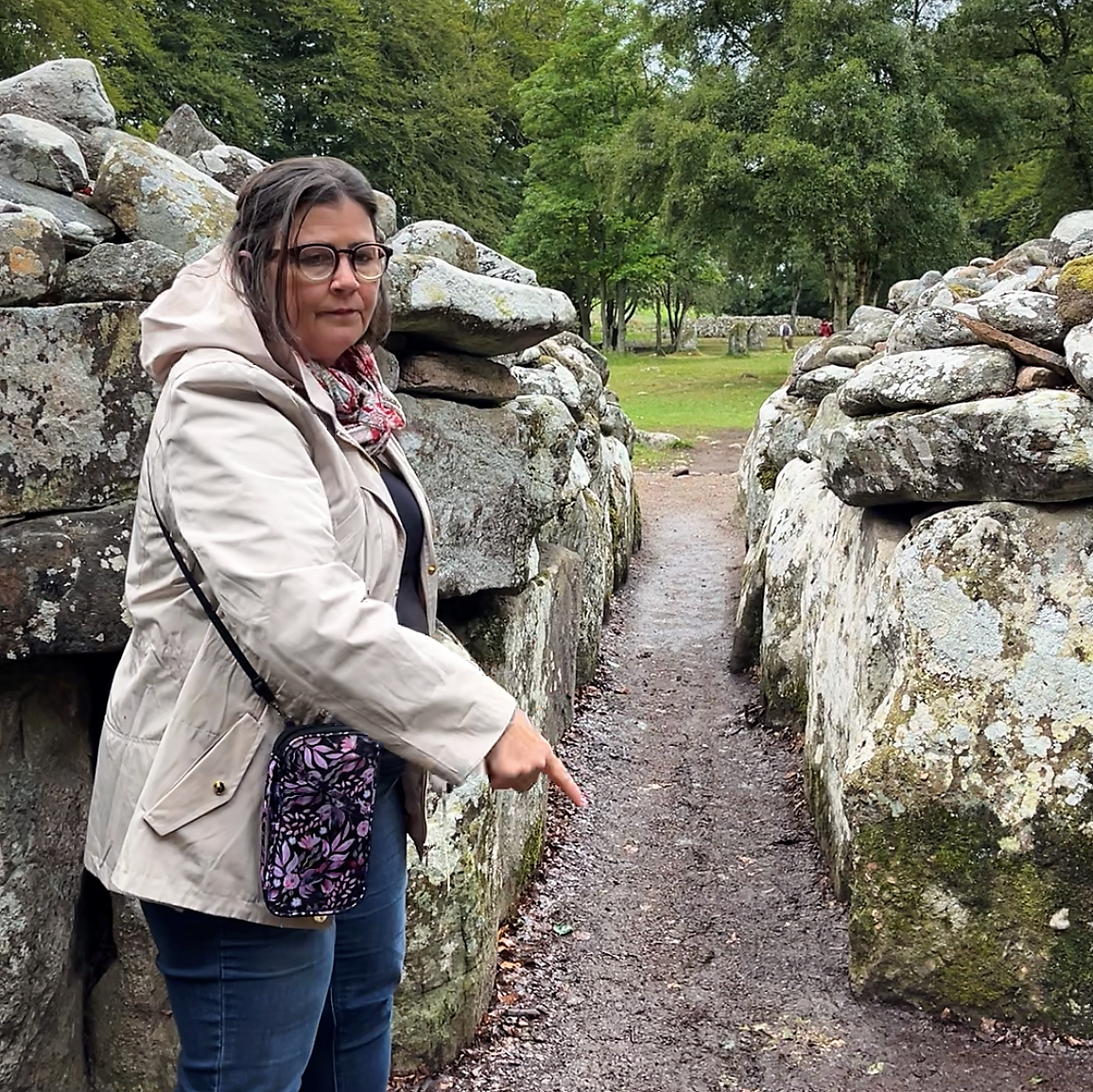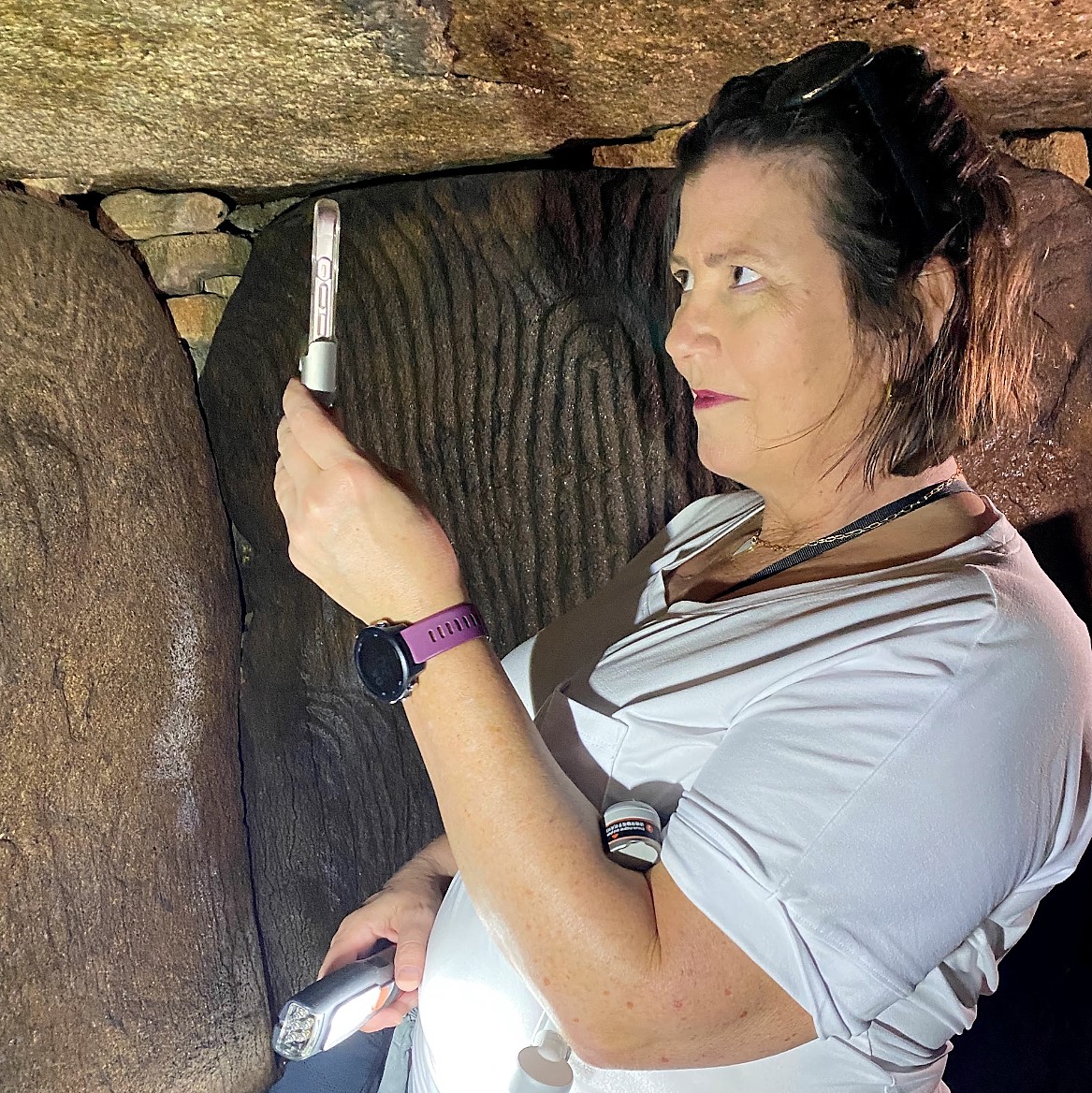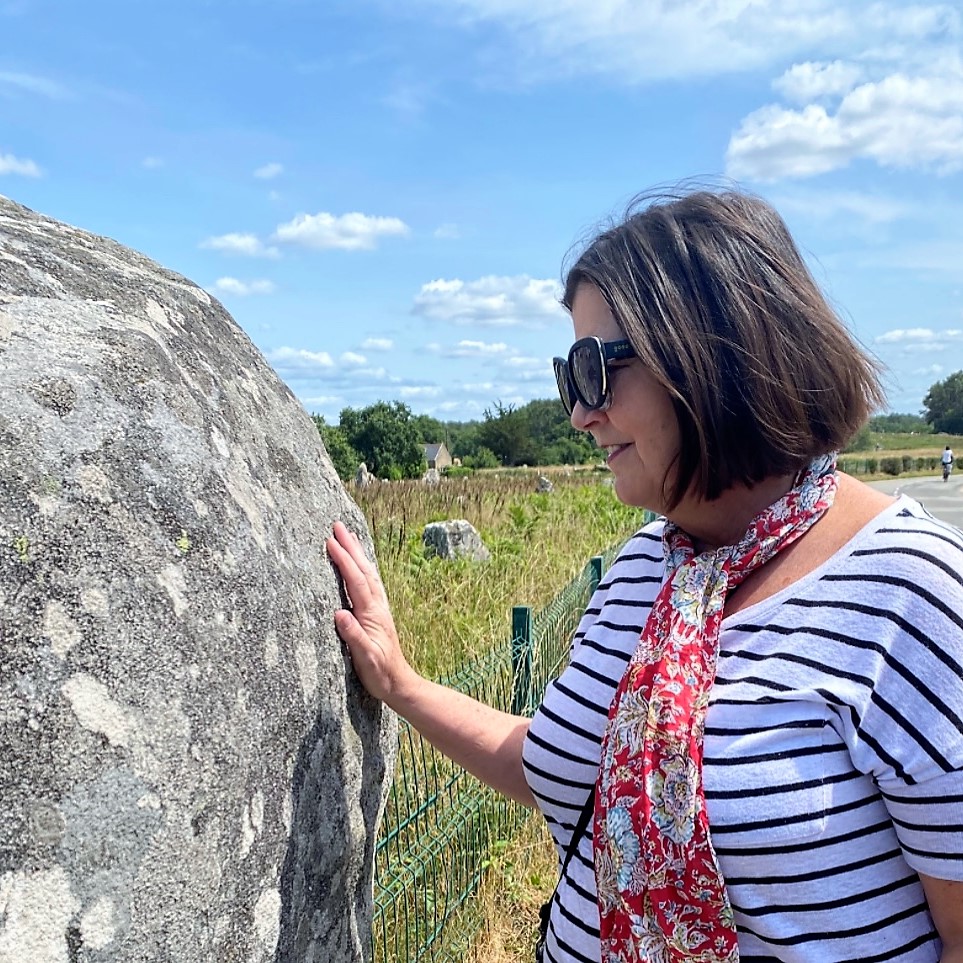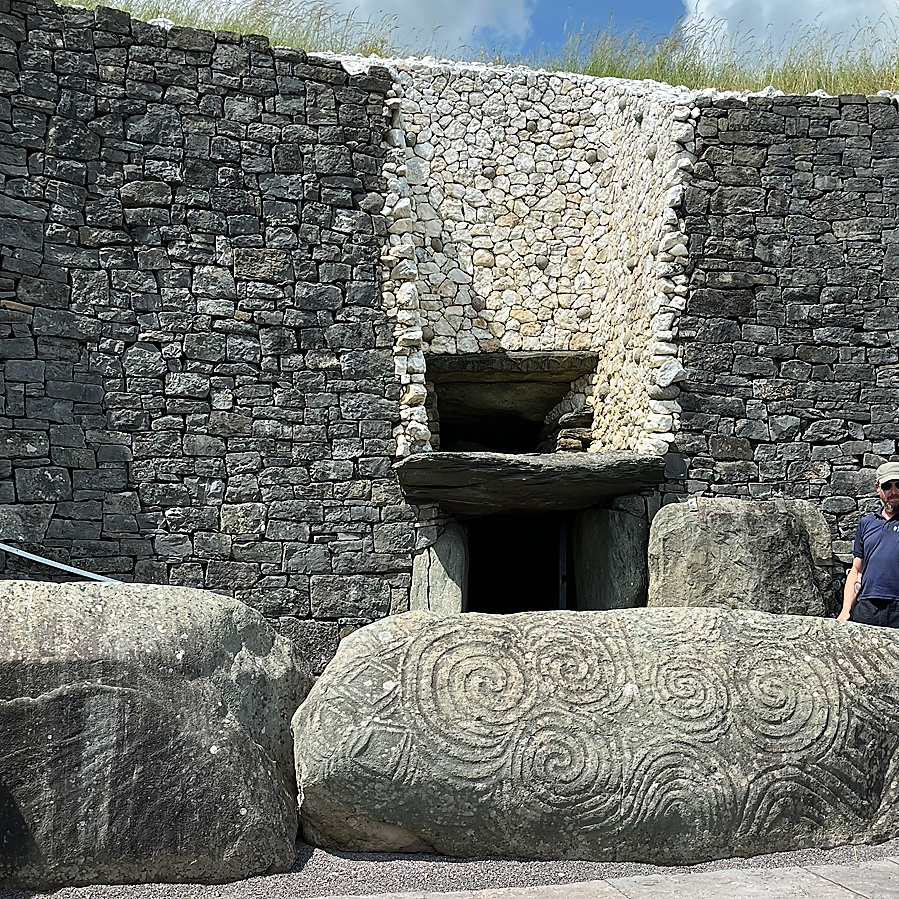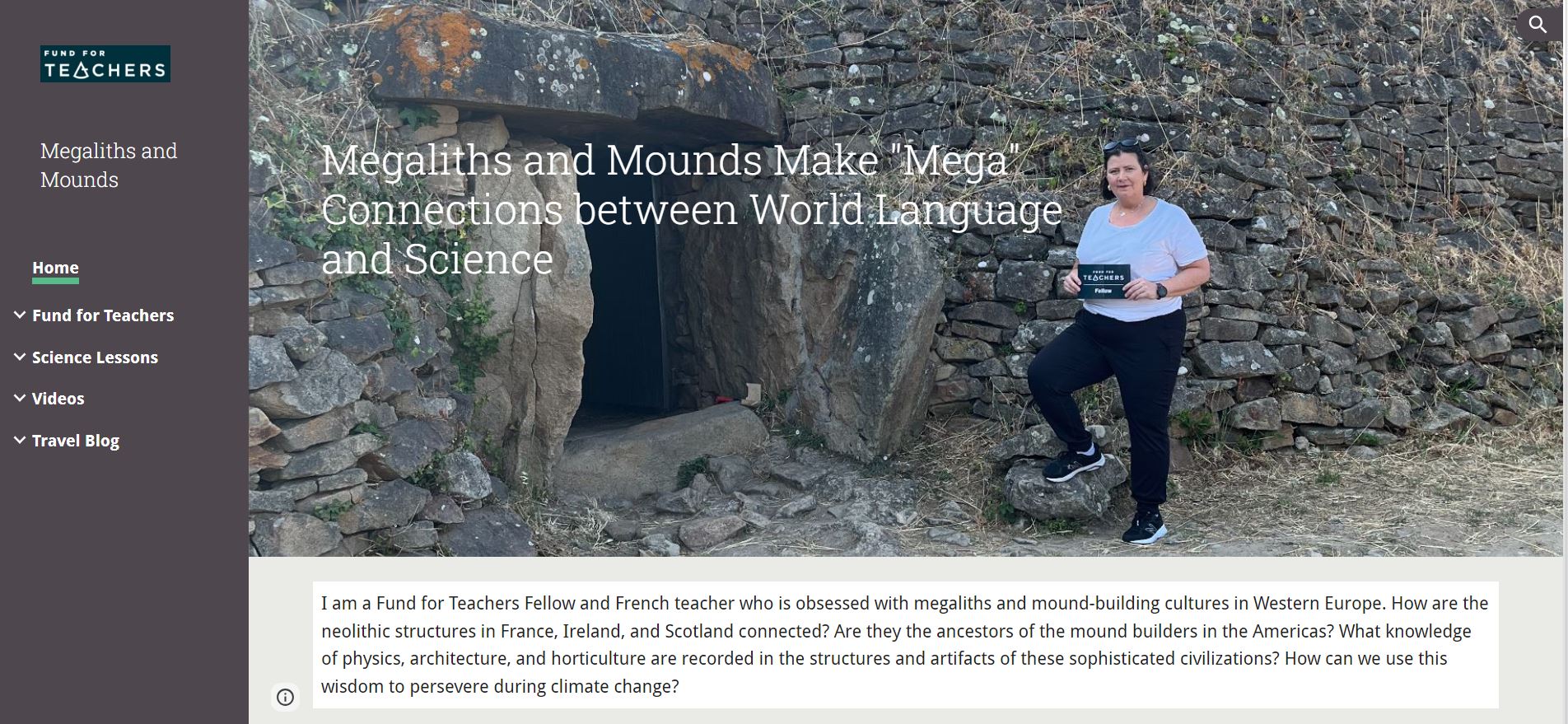Happy Halloween “Tomb” You
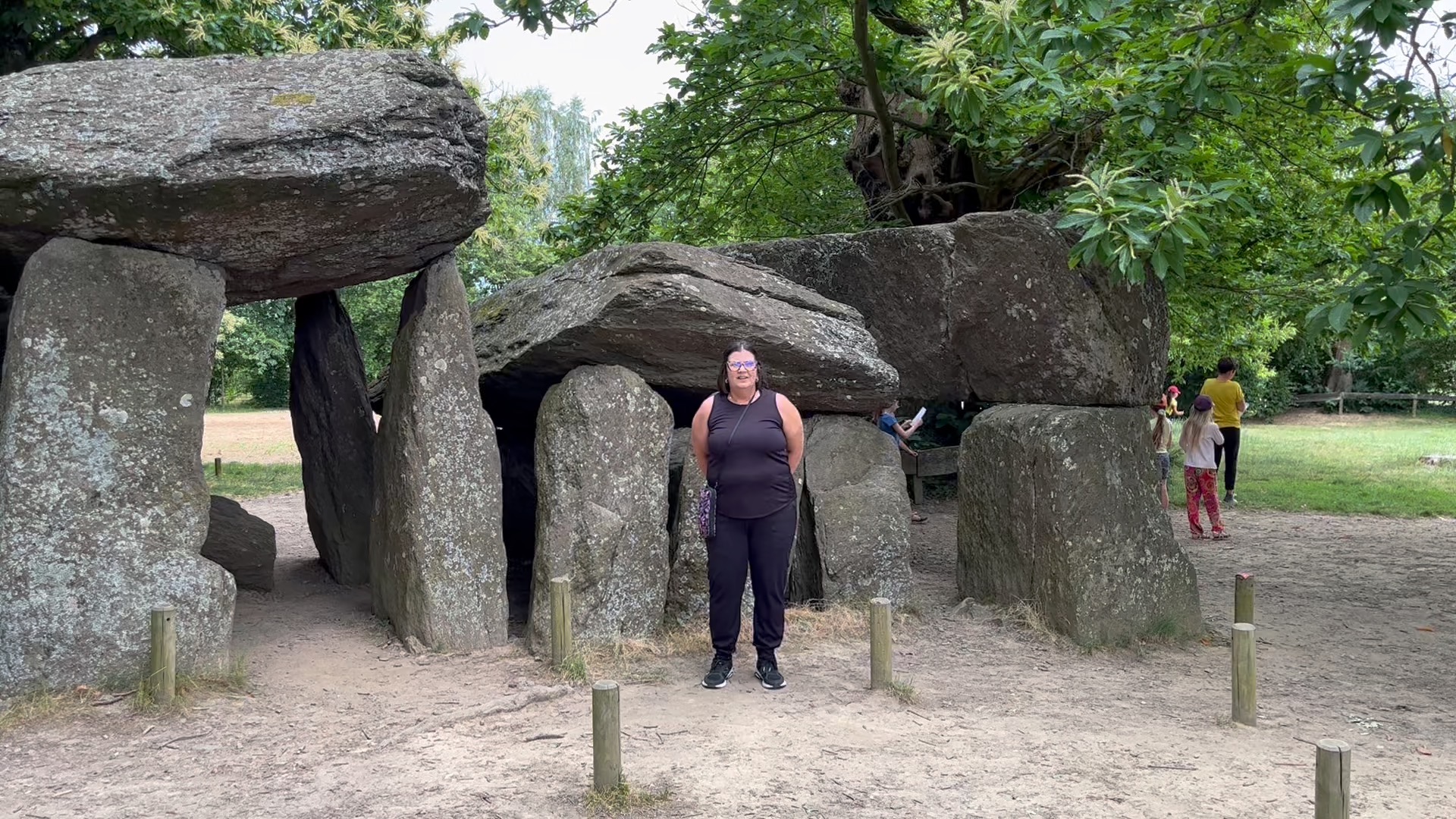
Halloween can be a scary time for teachers, due students’ sugar highs, costumes gone wrong, and the “ghosting” of students” the day after. For Jinafer Brown’s French students, the learning takes on a fatal feel, as well.
Jinafer used a Fund for Teachers grant to explore the mysterious megalithic stone structures in Western Europe, gather evidence from French forensic scientists and archeologists on the origins of the civilizations that built these structures and create an inquiry-based unit to improve students’ science literacy skills.
This fellowship focused on death is rooted in data: 79% of students at Jenks High School scored below proficient at in science. Additionally, an Academic State Standards for World Languages that Jinafer struggles to meet is “expanding students’ knowledge of other disciplines while using the language to develop critical thinking.” Researching Neolithic stones in Western Europe and the French forensic evidence of their origins offered the perfect mix of science and language (and also speaks to the free reign our grant recipients have when crafting their unique fellowships).
Read our 2022 Halloween post about FFT Fellows’ research of Jack the Ripper here
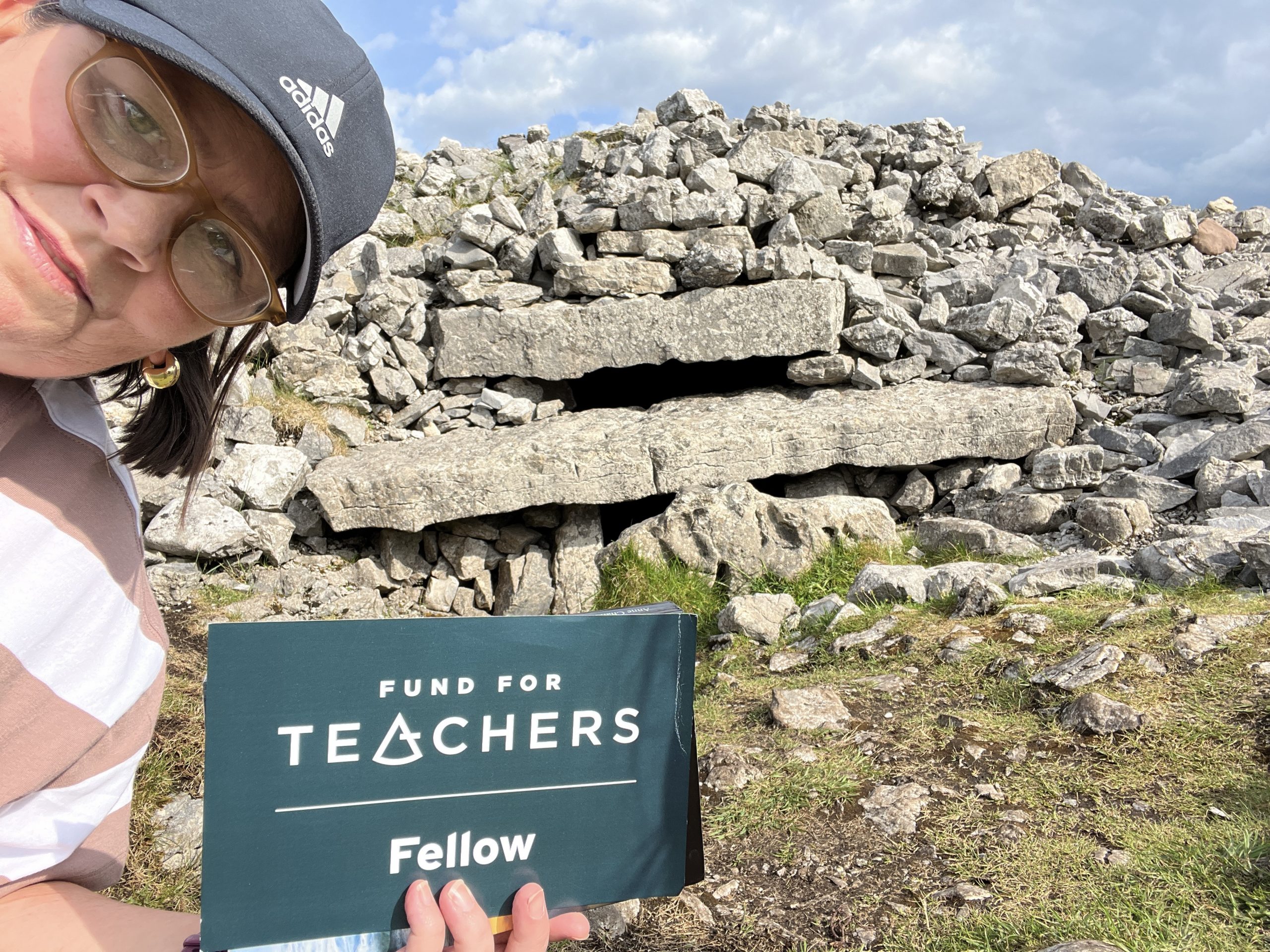
At Carrowkeel Mounds near Sligo, Ireland, I was able to explore freely without any restrictions other than my own fear. Believe it or not, I did muster the courage to skinny into the tomb behind me. It was for science!
Enter If You Dare — And She Did
Last summer on her Fund for Teachers fellowship, Jinafer documented:
- the Megalithic Passage Tombs of Boyne Valley of County Meath, Ireland (older than Stonehenge in England and the Pyramids of Giza in Egypt)
- the Gavrinis Tumulus in France, built in 3500 BCE;
- Roche-aux-fees, a 5,000-year-old passage tomb in Western France (pictured at the top of this post);
- the Carrowkeel Mounds near Sligo, Ireland; and,
- the Clava Cairns, a 4,000 burial site near Inverness, Scotland.
Her research included filming the sites for VR headsets, touring museums — such as the Archeology Museum of Dublin, where remains of “bog people” from AD 20 are on display — and interviewing docents. Jenifer participated in a workshop about the first villages of France at Paris’ Musée d’Archéologie Nationale in conjunction with annual European Archaeology Days and joined summer solstice celebrations at stone circles in Scotland.
Her Haunting Question
Throughout her learning, one question haunted her: “Should I be here?”
“I found that I had an internal debate as to whether or not funeral sites should be excavated. Should the remains of these kings and respected leaders be disturbed and viewed by thousands of visitors each day or should they remain closed out of respect for their cultures and their beliefs?” said Jinafer. “My professional mindset is that one’s intention makes all the difference. If one is studying these remains in order to make connections and remember the culture of that civilization, this is honorable.”
- Clava Cairns passageway aligned to winter solstice
- Videoing the intricate stone carvings dating back to 3500 BC.
- Entrance to New Grange is protected by megalithic kerbstone
Demystifying the Megaliths
Jinafer created this fantastic website for students to discover the “Mysteries of the Megaliths.” Here they will view videos and interviews in the French language.
“I gathered PDFs and hard-copy books that explain the Neolithic civilizations in French. I collected articles and 360-degree photos that allow students to examine artifacts extracted from tombs in Ireland, Scotland, and France. Using Virtual Reality headsets [which Jinafer secured with a second grant], these materials will come to life.”
Using a THIRD grant, Jinafer purchased friction kits and students will follow the science lab friction experiment procedures in French.
“In small groups, students will propose prototypes of sleds and other means to Move a Megalith, she said. “Community partners (retired engineers and business owners) will work with students to build their prototypes. Last, in a school-wide event, students will carry out their experiments to see if they can move a megalith using only materials available in the Neolithic era.”
Take advantage of the website, that includes Jinafer’s FFT grant proposal, here.
 Back to Blogs
Back to Blogs